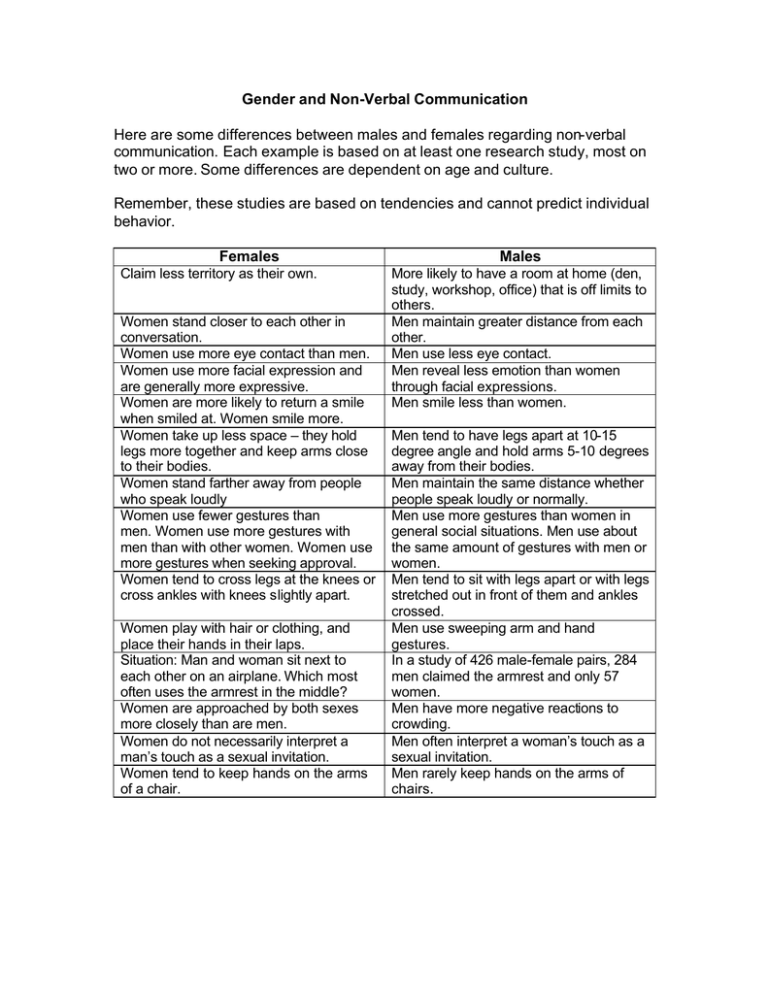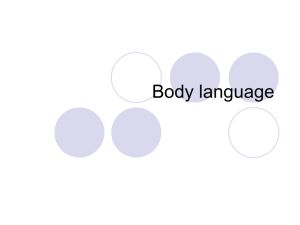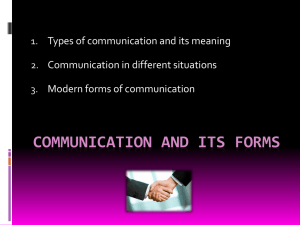
Gender and Non-Verbal Communication
Here are some differences between males and females regarding non-verbal
communication. Each example is based on at least one research study, most on
two or more. Some differences are dependent on age and culture.
Remember, these studies are based on tendencies and cannot predict individual
behavior.
Females
Claim less territory as their own.
Women stand closer to each other in
conversation.
Women use more eye contact than men.
Women use more facial expression and
are generally more expressive.
Women are more likely to return a smile
when smiled at. Women smile more.
Women take up less space – they hold
legs more together and keep arms close
to their bodies.
Women stand farther away from people
who speak loudly
Women use fewer gestures than
men. Women use more gestures with
men than with other women. Women use
more gestures when seeking approval.
Women tend to cross legs at the knees or
cross ankles with knees slightly apart.
Women play with hair or clothing, and
place their hands in their laps.
Situation: Man and woman sit next to
each other on an airplane. Which most
often uses the armrest in the middle?
Women are approached by both sexes
more closely than are men.
Women do not necessarily interpret a
man’s touch as a sexual invitation.
Women tend to keep hands on the arms
of a chair.
Males
More likely to have a room at home (den,
study, workshop, office) that is off limits to
others.
Men maintain greater distance from each
other.
Men use less eye contact.
Men reveal less emotion than women
through facial expressions.
Men smile less than women.
Men tend to have legs apart at 10-15
degree angle and hold arms 5-10 degrees
away from their bodies.
Men maintain the same distance whether
people speak loudly or normally.
Men use more gestures than women in
general social situations. Men use about
the same amount of gestures with men or
women.
Men tend to sit with legs apart or with legs
stretched out in front of them and ankles
crossed.
Men use sweeping arm and hand
gestures.
In a study of 426 male-female pairs, 284
men claimed the armrest and only 57
women.
Men have more negative reactions to
crowding.
Men often interpret a woman’s touch as a
sexual invitation.
Men rarely keep hands on the arms of
chairs.








